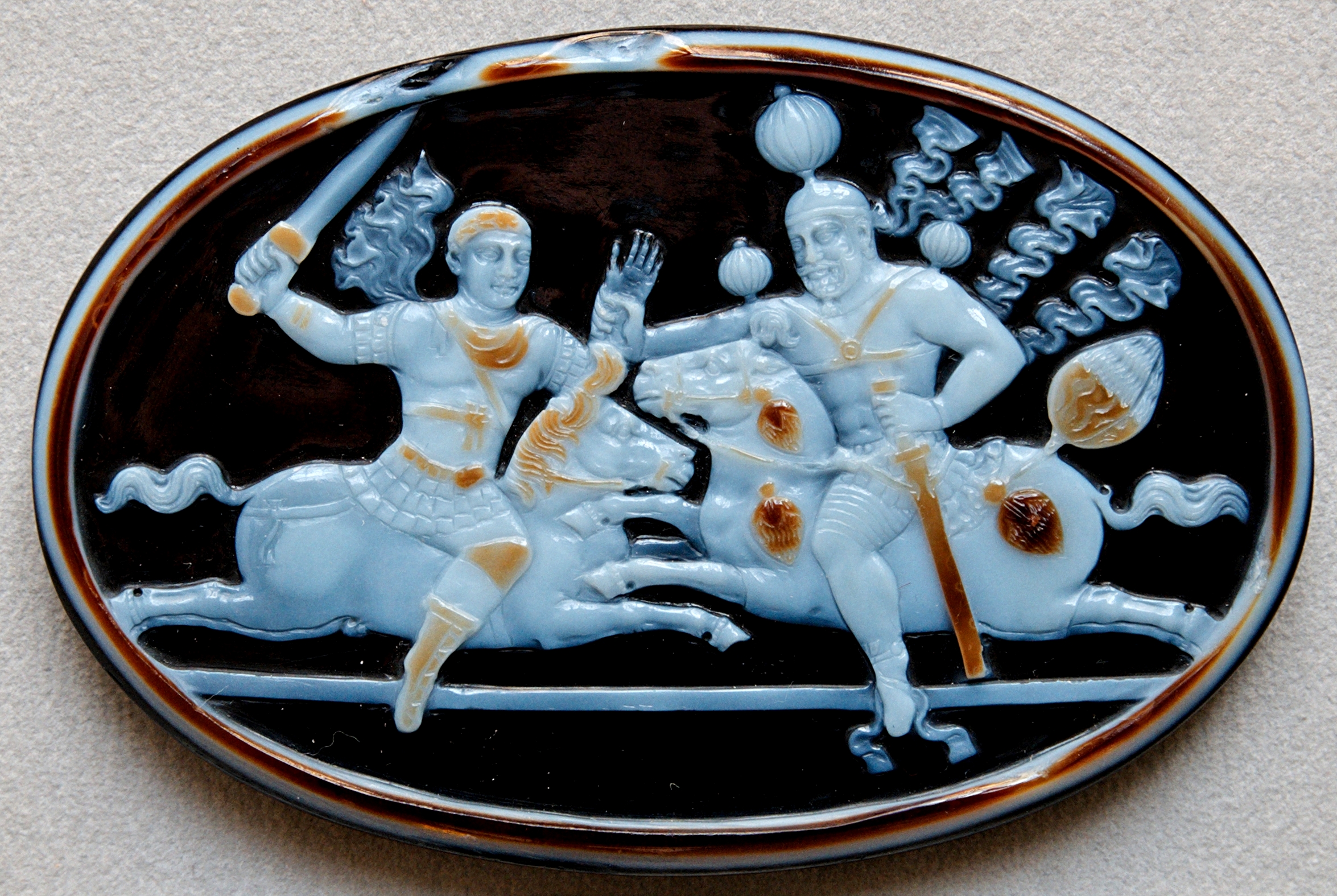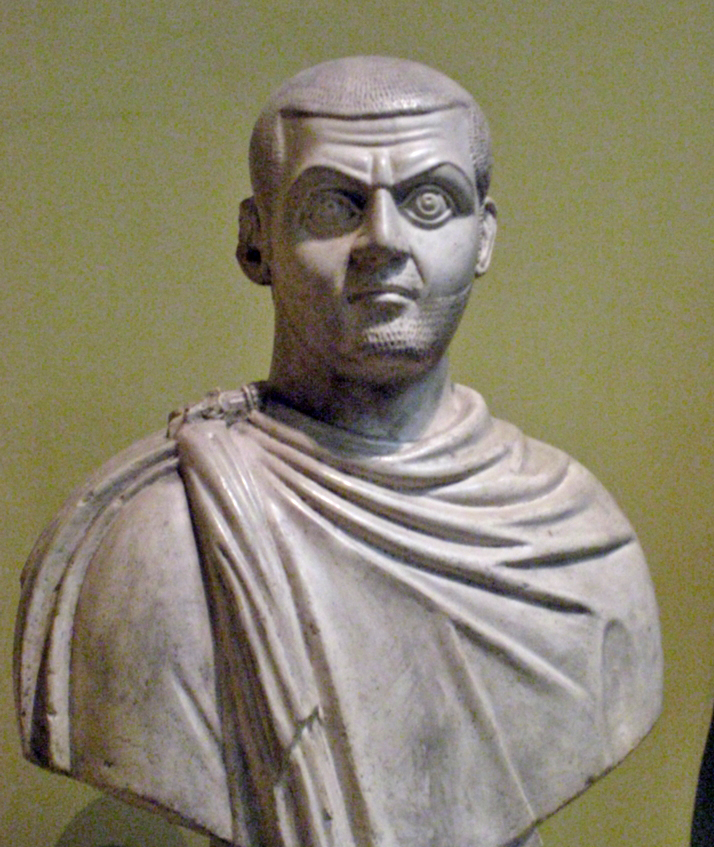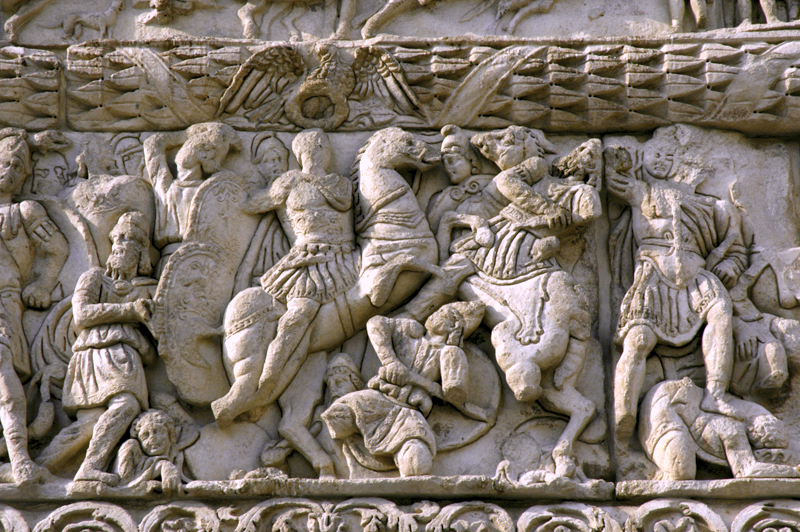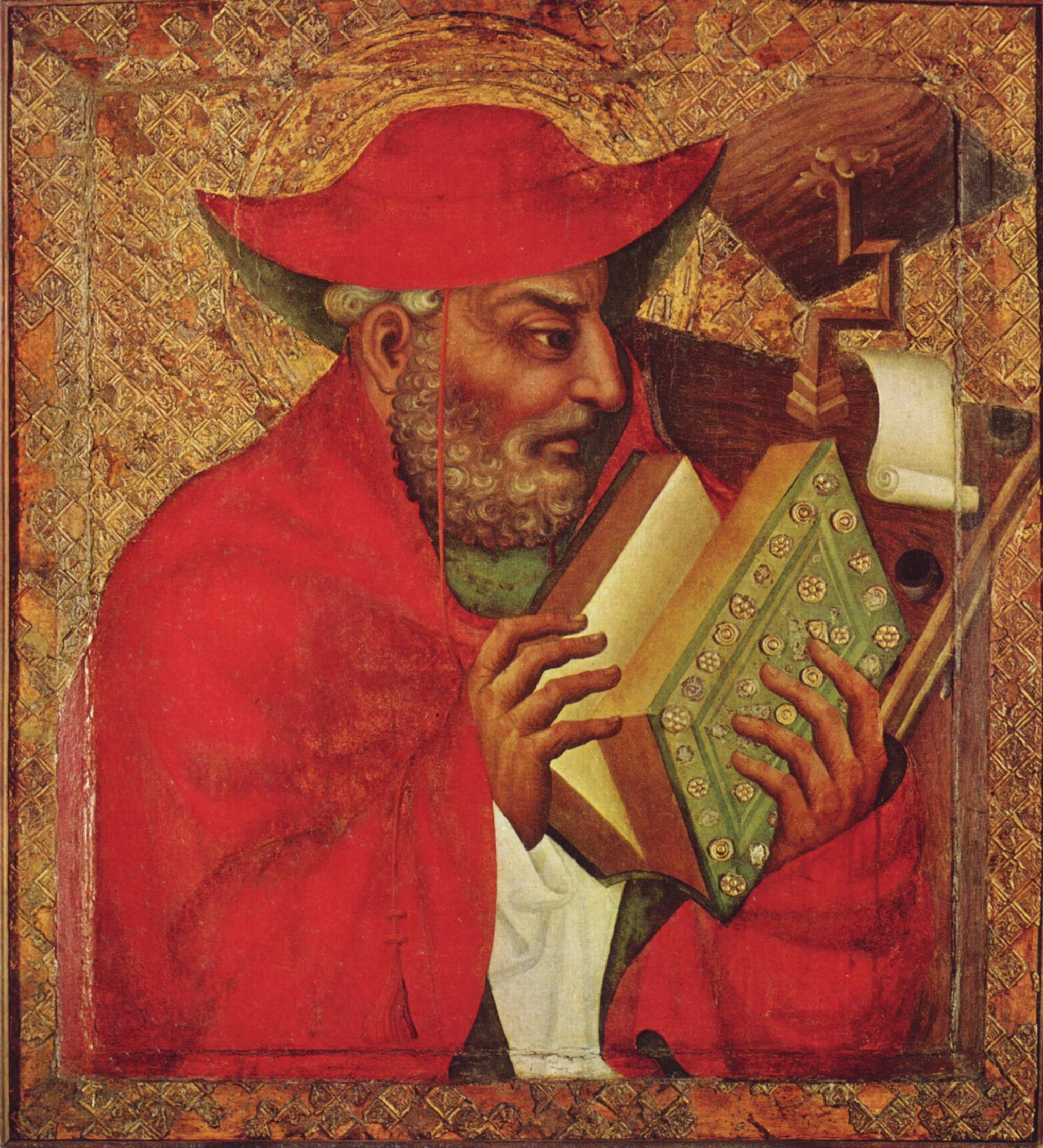|
Methodius Of Olympus
Methodius of Olympus () (died c. 311) was an early Christian bishop, ecclesiastical author, and martyr. Today, he is honored as a saint and Church Father; the Catholic Church commemorates his feast on June 20. Life Few reports have survived on the life of this first systematic opponent of Origen; even these short accounts present many difficulties. Eusebius does not mention him in his ''Church History'', probably because he opposed various theories of Origen, thus Jerome provides the earliest accounts of him. According to him, Methodius suffered martyrdom at Chalcis at the end of the newest persecution, i.e., under Diocletian, Galerius or Maximinus Daia. Although he then adds, "that some assert", that this may have happened under Decius and Valerian a, this statement (''ut alii affirmant''), adduced even by him as uncertain, is unlikely, given that Methodius also wrote against the Neoplatonic philosopher Porphyry (234–305). The location of Methodius's episcopal see is a ma ... [...More Info...] [...Related Items...] OR: [Wikipedia] [Google] [Baidu] |
Saint
In Christianity, Christian belief, a saint is a person who is recognized as having an exceptional degree of sanctification in Christianity, holiness, imitation of God, likeness, or closeness to God in Christianity, God. However, the use of the term ''saint'' depends on the context and Christian denomination, denomination. In Anglican Communion, Anglican, Oriental Orthodox, and Lutheranism, Lutheran doctrine, all of their faithful deceased in Heaven are considered to be saints, but a selected few are considered worthy of greater honor or emulation. Official Ecclesiastical polity, ecclesiastical recognition, and veneration, is conferred on some denominational saints through the process of canonization in the Catholic Church or glorification in the Eastern Orthodox Church after their approval. In many Protestant denominations, and following from Pauline usage, ''saint'' refers broadly to any holy Christian, without special recognition or selection. While the English word ''saint'' ... [...More Info...] [...Related Items...] OR: [Wikipedia] [Google] [Baidu] |
Martyr
A martyr (, ''mártys'', 'witness' Word stem, stem , ''martyr-'') is someone who suffers persecution and death for advocating, renouncing, or refusing to renounce or advocate, a religious belief or other cause as demanded by an external party. In colloquial usage, the term can also refer to any person who suffers a significant consequence in protest or support of a cause. In the martyrdom narrative of the remembering community, this refusal to comply with the presented demands results in the punishment or execution of an individual by an oppressor. Accordingly, the status of the 'martyr' can be considered a posthumous title as a reward for those who are considered worthy of the concept of martyrdom by the living, regardless of any attempts by the deceased to control how they will be remembered in advance. Insofar, the martyr is a relational figure of a society's boundary work that is produced by collective memory. Originally applied only to those who suffered for their religious b ... [...More Info...] [...Related Items...] OR: [Wikipedia] [Google] [Baidu] |
Patara (Lycia)
Patara (, Lycian language, Lycian: 𐊓𐊗𐊗𐊀𐊕𐊀, ''Pttara''; ) was an ancient and flourishing maritime and commercial city that was for a period the capital of Lycia. The site is located on the Turkish coast near to the village of Gelemiş, Kaş, Gelemiş, in Antalya Province. Saint Nicholas was born in the town in 270, and lived most of his life in the nearby town of Myra. Only part of the site has been excavated and renovated. The protection and archaeology of the site have been subject to battles between archaeologists and illegal developers. History Hittite Period Patara was referred to as Patar in Hittite texts: "King Tudhaliya IV (1236-1210 BC), after the Lukka lands, Lukka expedition, came to this city with his army and made offerings." Iron Age The city was said to have been founded by Patarus (), a son of Apollo. It was noted during antiquity for the temple and oracle of Apollo, second only in importance to that of Delphi. The god is often given the surna ... [...More Info...] [...Related Items...] OR: [Wikipedia] [Google] [Baidu] |
Lycia
Lycia (; Lycian: 𐊗𐊕𐊐𐊎𐊆𐊖 ''Trm̃mis''; , ; ) was a historical region in Anatolia from 15–14th centuries BC (as Lukka) to 546 BC. It bordered the Mediterranean Sea in what is today the provinces of Antalya and Muğla in Turkey as well some inland parts of Burdur Province. The region was known to history from the Late Bronze Age records of ancient Egypt and the Hittite Empire. Lycia was populated by speakers of Luwic languages. Written records began to be inscribed in stone in the Lycian language after Lycia's involuntary incorporation into the Achaemenid Empire in the Iron Age. At that time (546 BC) the Luwian speakers were displaced as Lycia received an influx of Persian speakers. The many cities in Lycia were wealthy as shown by their elaborate architecture starting at least from the 5th century BC and extending to the Roman period. Lycia fought for the Persians in the Persian Wars, but on the defeat of the Achaemenid Empire by the G ... [...More Info...] [...Related Items...] OR: [Wikipedia] [Google] [Baidu] |
Porphyry (philosopher)
Porphyry (; ; – ) was a Neoplatonic philosopher born in Tyre, Roman Phoenicia during Roman rule. He edited and published the '' Enneads'', the only collection of the work of Plotinus, his teacher. He wrote original works in the Greek language on a wide variety of topics, ranging from music theory to Homer to vegetarianism. His '' Isagoge'' or ''Introduction'', an introduction to logic and philosophy, was the standard textbook on logic throughout the Middle Ages in its Latin and Arabic translations. Porphyry was, and still is, also well-known for his anti-Christian polemics. Through works such as ''Philosophy from Oracles'' and '' Against the Christians'' (which was banned by Constantine the Great), he was involved in a controversy with early Christians. Life The ''Suda'' (a 10th-century Byzantine encyclopedia based on many sources now lost) reports that Porphyry was born in Tyre, however, other sources report that he was born in Batanaea, present-day Syria . His par ... [...More Info...] [...Related Items...] OR: [Wikipedia] [Google] [Baidu] |
Valerian (emperor)
Valerian ( ; ; – 260 or 264) was Roman emperor from 253 to spring 260 AD. Valerian is known as the first Roman emperor to have been taken captive in battle, captured by the Sassanid Empire, Persian emperor Shapur I after the Battle of Edessa, causing shock and instability throughout the Roman Empire. The unprecedented event and his unknown fate generated a variety of different reactions and "new narratives about the Roman Empire in diverse contexts". Biography Origins and rise to power Unlike many of the would-be emperors and rebels who vied for imperial power during the Crisis of the Third Century, Valerian was of a noble and traditional Roman Senate, senatorial family. Details of his early life are sparse, except for his marriage to Egnatia Mariniana, with whom he had two sons: Publius Licinius Egnatius Gallienus (his co-emperor and later successor) and Licinius Valerianus (brother of Gallienus), Licinius Valerianus. Valerian was Roman consul, consul for the first time eit ... [...More Info...] [...Related Items...] OR: [Wikipedia] [Google] [Baidu] |
Decius
Gaius Messius Quintus Trajanus Decius ( 201June 251), known as Trajan Decius or simply Decius (), was Roman emperor from 249 to 251. A distinguished politician during the reign of Philip the Arab, Decius was proclaimed emperor by his troops after putting down a rebellion in Moesia. In 249, he defeated and killed Philip Battle of Verona (249), near Verona and was recognized as emperor by the Roman Senate, Senate afterwards. During his reign, he attempted to strengthen the Roman state and its religion, leading to the Decian persecution, where a number of prominent Christians (including Pope Fabian) were put to death. In the last year of his reign, Decius co-ruled with his son Herennius Etruscus, until they were both killed by the Goths in the Battle of Abritus. Early life and rise to power Trajanus Decius was born Gaius Messius Quintus Decius Valerinus at Budalia, Illyricum (Roman province), Illyricum, near Sirmium in Pannonia Inferior.Lesley Adkins, Rot A. Adkins (2004). H ... [...More Info...] [...Related Items...] OR: [Wikipedia] [Google] [Baidu] |
Maximinus Daia
Galerius Valerius Maximinus, born as Daza (; 20 November 270 – July 313), was Roman emperor from 310 to 313. He became embroiled in the civil wars of the Tetrarchy between rival claimants for control of the empire, in which he was defeated by Licinius. A committed pagan, he engaged in one of the last persecutions of Christians, before issuing an edict of tolerance granting Christians their freedoms back near his death. Maximinus Daza is the last to be referred as Pharaoh of Egypt. Name The emperor Maximinus was originally called "Daza", an ancient name with various unknown high distinction meanings in Illyria, where he was born. The form "Daia" given by the Christian writer Lactantius, an important source on the emperor's life, is considered a misspelling. He acquired the name "Maximinus" at the request of his maternal uncle, Galerius (a Roman emperor of Dacian origin). Modern scholarship often refers to him as "Maximinus Daza", though this particular form is not attes ... [...More Info...] [...Related Items...] OR: [Wikipedia] [Google] [Baidu] |
Galerius
Galerius Valerius Maximianus (; Greek: Γαλέριος; 258 – May 311) was Roman emperor from 305 to 311. He participated in the system of government later known as the Tetrarchy, first acting as '' caesar'' under Emperor Diocletian. In this period Galerius obtained victory warring against the Persian Sassanian Empire, defeating Narseh at the battle of Satala in 298 and possibly sacking the Sassanian capital of Ctesiphon in 299. He also campaigned across the Danube against the Carpi, defeating them in 297 and 300. Galerius was promoted to ''augustus'' upon the abdication of Diocletian in 305, but had to contend with multiple usurpers as the Tetrarchic system broke down. Although he was a staunch opponent of Christianity, he ended the Diocletianic Persecution by issuing the Edict of Serdica in 311. Early life Galerius was born in the Danube provinces, either near Serdica or at the place where he later built his palace named after his mother – Felix Romuliana ( Gamzigr ... [...More Info...] [...Related Items...] OR: [Wikipedia] [Google] [Baidu] |
Diocletian
Diocletian ( ; ; ; 242/245 – 311/312), nicknamed Jovius, was Roman emperor from 284 until his abdication in 305. He was born Diocles to a family of low status in the Roman province of Dalmatia (Roman province), Dalmatia. As with other Illyrian emperors, Illyrian soldiers of the period, Diocles rose through the ranks of the military early in his career, serving under Aurelian and Probus (emperor), Probus, and eventually becoming a Roman cavalry, cavalry commander for the army of Emperor Carus. After the deaths of Carus and his son Numerian on a campaign in Sasanian Empire, Persia, Diocles was proclaimed emperor by the troops, taking the name "Diocletianus". The title was also claimed by Carus's surviving son, Carinus, but he was defeated by Diocletian in the Battle of the Margus. Diocletian's reign stabilized the empire and ended the Crisis of the Third Century. He initiated the process of the Roman Empire split and appointed fellow officer Maximian as ''Augustus (title), Augu ... [...More Info...] [...Related Items...] OR: [Wikipedia] [Google] [Baidu] |
Jerome's De Viris Illustribus
''De Viris Illustribus'' (''On Illustrious Men'') is a collection of short biographies of 135 authors, written in Latin, by the 4th-century Latin Church Father Jerome. He completed this work at Bethlehem in 392–393 AD. The work consists of a prologue plus 135 chapters, each consisting of a brief biography. Jerome himself is the subject of the final chapter. A Greek version of the book, possibly by the same Sophronius who is the subject of Chapter 134, also survives. Many biographies take as their subject figures important in Christian Church history and pay especial attention to their careers as writers. It "was written as an apologetic work to prove that the Church had produced learned men." The book was dedicated to Flavius Lucius Dexter, who served as high chamberlain to Theodosius I and as praetorian prefect to Honorius. Dexter was the son of Saint Pacianus, who is eulogized in the work. Contents Listed below are the subjects of Jerome's 135 biographies. The ... [...More Info...] [...Related Items...] OR: [Wikipedia] [Google] [Baidu] |
Jerome
Jerome (; ; ; – 30 September 420), also known as Jerome of Stridon, was an early Christian presbyter, priest, Confessor of the Faith, confessor, theologian, translator, and historian; he is commonly known as Saint Jerome. He is best known for his translation of the Bible into Latin (the translation that became known as the Vulgate) and his commentaries on the whole Bible. Jerome attempted to create a translation of the Old Testament based on a Hebrew version, rather than the Septuagint, as Vetus Latina, prior Latin Bible translations had done. His list of writings is extensive. In addition to his biblical works, he wrote polemical and historical essays, always from a theologian's perspective. Jerome was known for his teachings on Christian moral life, especially those in cosmopolitan centers such as Rome. He often focused on women's lives and identified how a woman devoted to Jesus should live her life. This focus stemmed from his close patron relationships with several pro ... [...More Info...] [...Related Items...] OR: [Wikipedia] [Google] [Baidu] |








